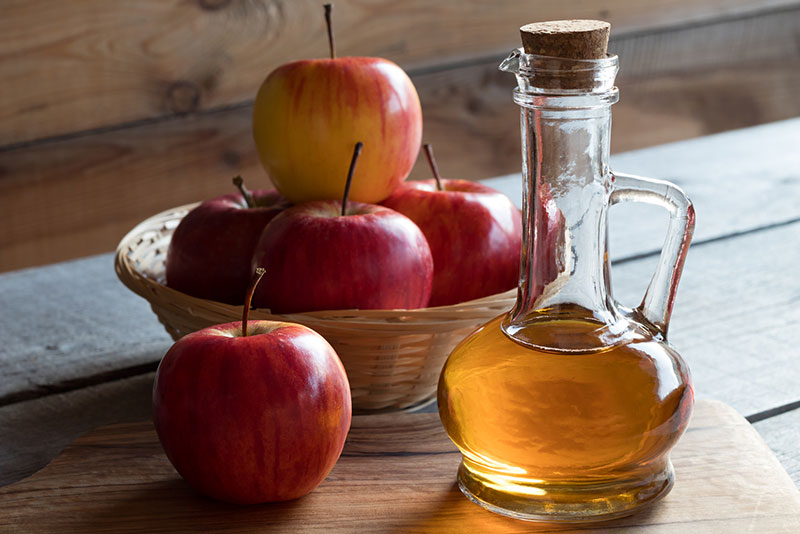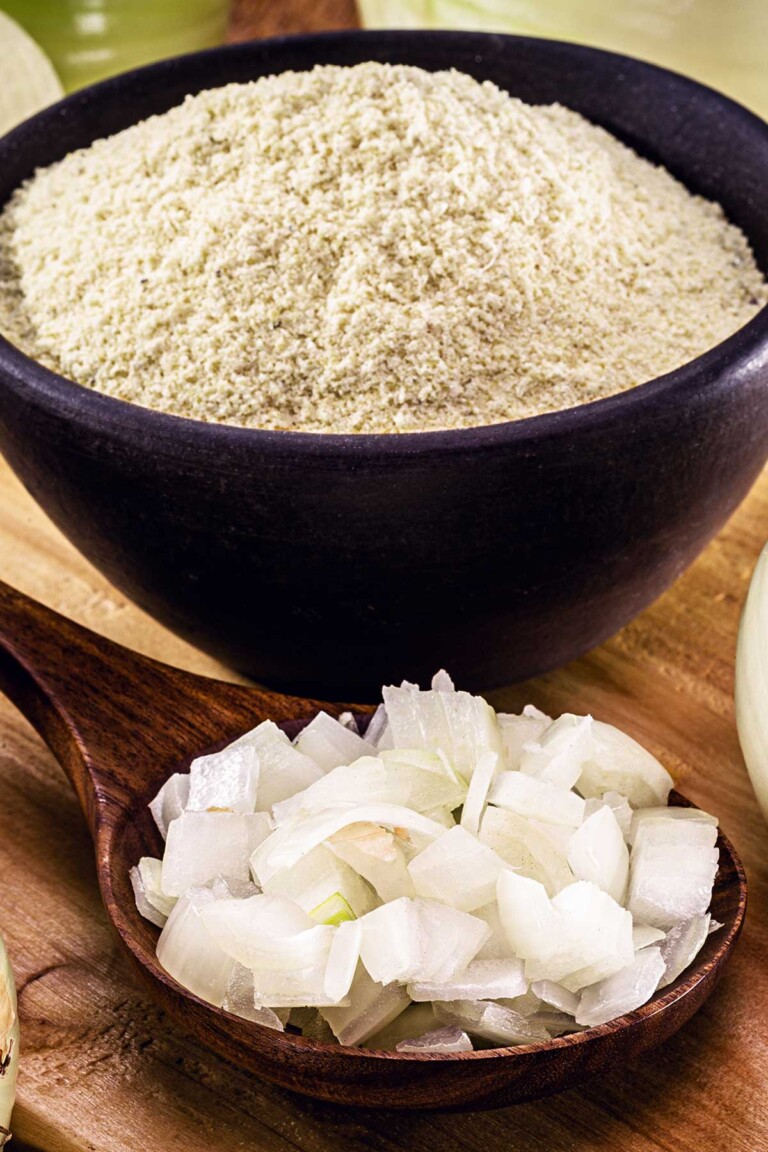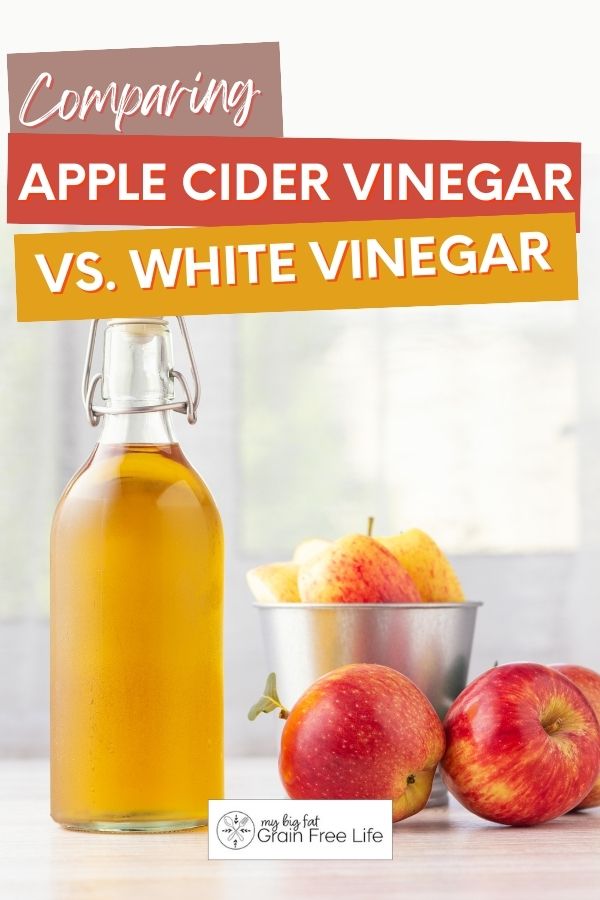Full Breakdown: Apple Cider Vinegar With Mother Vs Without
This post may contain affiliate links. If you make purchase after clicking a link, I may receive a commission at no extra cost to you.
Last Updated on October 11, 2023
You may have heard about all the health benefits of apple cider vinegar. But do you know the differences between apple cider vinegar with mother vs without? We’ll explore all the details in this article to best educate you on both types of vinegar.

Apple Cider Vinegar With Mother Vs Without
In the wide-ranging world of wellness, apple cider vinegar (ACV) has become a staple ingredient in many pantries. You may have heard about the benefits of ACV, from aiding digestion to improving skin health.
Yet, as you navigate through the ACV aisle, you’re confronted different types of apple cider vinegar: apple cider vinegar with mother and without mother.
Is there a significant difference between apple cider vinegar with mother vs without?
We’re going to compare the two variants to provide a clear picture. We’ll assess the nutritional profile, taste and appearance, health benefits, and potential drawbacks of each, utilizing reputable studies and expert insights.
What is Apple Cider Vinegar?
Apple cider vinegar, often abbreviated as ACV, is made from fermented apple juice. The fruit’s sugar is first converted into alcohol through fermentation, which is then transformed into vinegar by acetic acid-forming bacteria.
ACV has a distinct fruity, yet tangy flavor and is commonly used in cooking, cleaning, and various health remedies. It’s packed with vitamins, minerals, and antioxidants, making it a popular choice for those seeking a natural approach to health.

What is the ‘Mother’ in Apple Cider Vinegar?
The ‘mother’ in apple cider vinegar refers to a combination of yeast and bacteria formed during the fermentation process.
It has a murky appearance, with a cobweb-like substance that is rich in health-boosting natural protein, healthy bacteria, and acetic acid.
It’s believed to have many health benefits due to the presence of beneficial enzymes and friendly bacteria. The mother culture is what makes raw, unpasteurized apple cider vinegar more beneficial than its clear, processed counterparts.

What Is Apple Cider Vinegar Without Mother?
Apple cider vinegar (ACV) without ‘mother’ is a type of vinegar made from fermented apple juice. It undergoes a pasteurization process which removes the ‘mother’ and cloudy appearance that naturally forms during vinegar’s fermentation process.
This ‘mother’ is rich in good bacteria and yeast, but its removal results in a clear, amber-colored vinegar.
ACV without ‘mother’ still retains the tangy taste and is commonly used in culinary applications, however, it may lack some of the beneficial effects of unrefined vinegar found in its raw, unpasteurized counterpart.

What’s the Difference Between Filtered and Unfiltered Apple Cider Vinegar?
Filtered apple cider vinegar, as the name suggests, undergoes a filtration process that removes the ‘mother,’ along with presence of beneficial bacteria that contains helpful enzymes and proteins.
This results in a clear, amber-colored vinegar that is often preferred for its smooth, mild taste and aesthetic appeal.
On the other hand, unfiltered and unpasteurized ACV retains the ‘mother,’ offering a cloudier appearance and stronger, more robust flavor full of medicinal properties.
Types Of Apple Cider Vinegar
1. Organic Raw Apple Cider Vinegar: This type contains the mother of vinegar, a naturally occurring compound that provides beneficial enzymes and probiotics. It is unfiltered and unpasteurized, preserving its natural elements.
2. Filtered Apple Cider Vinegar: This version undergoes a process to remove the mother and any sediment, creating a smoother, clean product. Filtered apple cider vinegar is typically pasteurized as well.
3. Apple Cider Vinegar Pills: These are a concentrated form of apple cider vinegar, formulated into a pill for those who dislike the taste of vinegar. It allows for easy daily consumption, with the same potential benefits.
4. Flavored Apple Cider Vinegars: These include additional flavors like ginger, turmeric, or berries. They’re great for those who enjoy the benefits of apple cider vinegar but prefer a unique taste.
5. Apple Cider Vinegar Gummies: These gummies offer a palatable alternative to the vinegar’s strong taste.
Comparing Apple Cider Vinegar With Mother Vs. Filtered Apple Cider Vinegar
There are differences between apple cider vinegar with mother vs without, most notably in appearance and taste.
| ACV With Mother | ACV Without Mother | |
|---|---|---|
| Taste | It typically has a robust, tangy flavor that is more pronounced compared to its counterpart. The earthy undertones and a slightly yeasty taste attributable to the Mother make it a preferred choice for many culinary enthusiasts. | It has a smoother and a cleaner tangy taste. Its flavor is less complex, making it a more subtle addition to recipes and dressings. |
| Color | The presence of the Mother gives this vinegar a characteristic cloudy appearance with a slight yellowish-brown color. | It exhibits a clear, bright amber hue, due to the filtration and pasteurization process it undergoes. |
| Appearance | It looks cloudy due to the strands of the Mother that are a natural byproduct of the fermentation process. These strands might settle at the bottom of the bottle. | Its appearance is clear and smooth, devoid of any visible sediments or strands, due to the rigorous filtration process. |
| Benefits | The Mother is believed to be rich in health-boosting natural proteins, healthy bacteria, and acetic acid. It may aid in improving digestion, boosting immune system function, promoting weight loss, and maintaining healthy skin. | While still beneficial, it may lack some of the health benefits provided by the Mother. However, it still contains acetic acid, which may help manage blood sugar levels, aid in weight loss, and promote heart health. |
Properties of Apple Cider Vinegar
1. Rich in Acetic Acid: The primary component in ACV, acetic acid, aids digestion, lowers blood sugar levels, and promotes fat burning.
2. Packed with Beneficial Enzymes: ACV undergoes fermentation, producing enzymes that support gut health and boost immune function.
3. High in Antioxidants: ACV contains antioxidants like catechin and chlorogenic acid, which combat oxidative stress and promote overall wellness.
4. Contains Trace Minerals: Minerals such as potassium, magnesium, and calcium found in ACV contribute to healthy bodily functions.
5. Promotes Alkalinity: Despite its acidic taste, ACV actually helps balance the body’s pH levels, promoting an alkaline state that is linked to good health.
6. Antibacterial Properties: ACV has potent antibacterial properties. It’s often used in natural cleaning solutions and can even help treat certain skin conditions.
Health Benefits Of Apple Cider Vinegar With Mother
With a range of benefits from boosting digestion to controlling blood sugar levels, it’s time to unlock the potent power this age-old remedy provides. Let’s delve into the potential health benefits of apple cider vinegar with the mother.
Helps Boosts Gut Health
The ‘mother’ in apple cider vinegar promotes healthy bacteria in the gut, aiding digestion.
Enhances Weight Loss
Regular consumption can help increase feelings of fullness, leading to lower calorie intake.
May Help Regulate Blood Sugar Levels
Apple cider vinegar can improve insulin sensitivity, helping to regulate blood sugar levels after meals.
May Lower Cholesterol
It can help lower LDL (bad) cholesterol levels and increase HDL (good) cholesterol.
Improves Skin Health
It has antibacterial properties, which can help improve skin health and reduce acne.
Helps Suppresses Appetite
The acetic acid in it can help suppress your appetite, reducing calorie intake.
Can Increase Energy Levels
ACV can help increase energy levels by aiding in the breakdown of carbohydrates for energy.
May Help Balance pH Levels
Apple cider vinegar can help balance the body’s pH levels, which can improve overall wellbeing.
Strengthens Immune System
The ‘mother’ contains beneficial bacteria that can boost the immune system.
Promotes Cardiovascular Health
It may reduce blood pressure, a key risk factor for heart disease.
Enhances Detoxification
Apple cider vinegar can aid in detoxification by promoting healthy liver function.
Reduces Acid Reflux
Consumed before meals, ACV can help prevent acid reflux. However, if you are on a low-acid diet and avoiding acidic foods, then this might work against you; it really depends on the individual as ACV can further irritate a damaged throat.
Boosts Metabolism
Consuming apple cider vinegar with mother helps increase metabolism, which can aid in weight loss.
May Promote Alkalinity
Regular consumption helps promote alkalinity in the body, optimizing health.
Helps Fight Fungal Infections
Its antifungal properties can help fight fungal infections.
May Improve Bone Health
ACV aids in the absorption of calcium, promoting bone health.
Reduces Inflammation
Apple cider vinegar contains anti-inflammatory properties, which can reduce inflammation in the body.
Can Enhance Oral Health
The antibacterial properties of apple cider vinegar can help improve oral health.
May Improve Circulation
Regular consumption of apple cider vinegar can help improve circulation.
Reduces Dandruff
Used as a scalp rinse, it can help reduce dandruff.
May Boost Nutrient Absorption
Apple cider vinegar can improve nutrient absorption by aiding digestion.
Fights Oxidative Stress
ACV contains antioxidants that can help fight oxidative stress.
Promotes Hair Health
Using apple cider vinegar can help balance hair’s pH, promoting hair health.
Reduces Leg Cramps
It contains potassium, which can help reduce leg cramps.
Alleviates Symptoms of Sinusitis
The antibacterial properties of ACV can help alleviate symptoms of sinusitis.

Top Uses of Apple Cider Vinegar
Apple cider vinegar is a versatile product with a wide array of uses, recognized for its potential health benefits and household applications.
Here are the top uses for your bottle of apple cider vinegar:
1. Health Aid: ACV contains a substance known as acetic acid, which may help to lower blood sugar levels, contribute to weight loss, and improve heart health. It’s often taken diluted in water or tea.
2. Digestive Support: It can aid digestion and help alleviate issues such as bloating and indigestion. It can promote a healthy gut flora balance, boosting overall digestive health.
3. Skin Care: ACV’s antibacterial properties make it an excellent natural remedy for numerous skin conditions, including acne. It can be used as a toner or spot treatment, always diluted, to help balance the skin’s pH and reduce inflammation.
4. Hair Care: Using diluted apple cider vinegar as a hair rinse can help to remove product buildup, detangle, and add shine to your hair. It can balance the pH levels of the scalp and help with dandruff control.
5. Household Cleaner: Apple Cider Vinegar can also serve as a natural, non-toxic household cleaner. Its antimicrobial properties make it effective for cleaning and disinfecting.
6. Food Preservative: ACV is commonly used as a preservative in pickling processes due to its acidity. It can help keep fruits and vegetables fresh for longer.
7. Salad Dressing: It be whisked with olive oil, mustard, and seasonings to create a tangy, flavorful vinaigrette. I use it to make my popular zucchini pasta salad recipe.
8. Insect Repellent: Its strong odor can repel insects, particularly fruit flies. A small dish of ACV can act as a trap.
Possible Side Effects of Apple Cider Vinegar
While apple cider vinegar can have several health benefits when used correctly, it’s crucial to use it responsibly and be aware of the possible side effects. Always consult with a healthcare professional before starting any new health regimen.
Digestive Discomfort
While some people use apple cider vinegar to improve digestion, it may cause stomach discomfort in others. This is especially true when consumed in high amounts or undiluted.
Lower Potassium Levels
Regular consumption of apple cider vinegar may lead to lower potassium levels in the body, which can negatively affect heart health.
Tooth Enamel Erosion
The acidic nature of apple cider vinegar can cause erosion of tooth enamel if not properly diluted or consumed in moderation.
Throat Irritation
The acetic acid in apple cider vinegar can cause throat irritation or discomfort, particularly when consumed in large amounts or undiluted.
Skin Burns
Some people may experience skin burns or irritation due to the high acidity of apple cider vinegar. This is particularly true when it is applied directly to the skin without being diluted.
Blood Sugar Regulation
While it can help manage blood sugar levels in some people, it can also interfere with diabetes medication and cause dangerously low blood sugar levels.
Reduced Bone Density
Long-term consumption of apple cider vinegar can lead to reduced bone density and increased risk of osteoporosis.
Drug Interactions
Apple cider vinegar may interact with certain medications, including diabetes medication, digoxin, and certain diuretics.
Delayed Stomach Emptying
This can lead to a feeling of fullness and a decrease in the rate at which food leaves the stomach, potentially affecting digestion and nutritional absorption.
Nausea
Some people may experience nausea after consuming apple cider vinegar, particularly when taken on an empty stomach or in large amounts.
When to Use Filtered Vs. Unfiltered
Both filtered and unfiltered ACV are readily available at the grocery store. However, to reap the maximum benefits, it’s important to understand when to use which type.
1. Culinary Uses: Filtered ACV is clear and more aesthetically pleasing, making it an ideal choice for marinades, salad dressings, and pickling. Its milder flavor is less likely to overpower the taste of dishes.
2. Health Remedies: Unfiltered ACV, with its ‘mother’ component (a colony of beneficial bacteria), is touted as the healthier choice. It’s often used in detox drinks, tonics, and health remedies.
3. Hair and Skin Care: Unfiltered ACV is preferred for topical use, including hair rinses and skin toners, due to its higher nutrient content.
4. Cleaning Purposes: Filtered ACV, with its smooth consistency and neutral smell, is suitable for household cleaning purposes, leaving your surfaces spotless and fresh.
5. Baking: Filtered ACV is typically used in baking due to its neutral flavor, helping your baked goods rise without imparting any unwanted tastes.
6. Weight Loss: Unfiltered ACV is often recommended for weight loss regimes, as the ‘mother’ is believed to aid in digestion and promote a feeling of fullness.
Which Vinegar Should You Buy?
When you are looking to purchase a bottle of apple cider vinegar, opting for an organic brand that’s raw, unfiltered, and with the mother will provide you with the best health benefits.
If you are using it for cleaning purposes, it doesn’t necessarily need to be organic, and filtered is fine.
How to Store Apple Cider Vinegar
Apple cider vinegar must be stored correctly to maintain its potency and flavor. Follow these steps to properly store your apple cider vinegar:
1. Avoid Heat Exposure: Heat can degrade the quality of apple cider vinegar. Never store ACV near a stove, oven, or in direct sunlight. A cool, dark place like a pantry or a cabinet away from light is the best location.
2. Use the Right Container: The best way to store ACV is in its original glass container. If necessary, transfer it to a clean, dark-colored glass bottle. Glass is non-reactive, which helps preserve the quality of the ACV. Avoid plastic or metal containers as they can negatively interact with the vinegar.
3. Seal Tightly: After each use, ensure the lid or cap is tightly secured to prevent exposure to air, which can lead to evaporation and potential contamination.
4. Refrigeration is Optional: ACV does not need to be refrigerated. However, if you prefer it chilled or if your kitchen tends to be warm, refrigeration can help maintain its quality.
5. Monitor the Mother: Unfiltered, unpasteurized apple cider vinegar often contains a substance called the mother, which looks like a cloudy sediment. This is normal and healthy. If the mother starts to change color or smell, this could indicate spoilage.
Final Summary
The differences between apple cider vinegar with mother and without are significant, each with its own unique properties and benefits. ACV with mother, being unfiltered and unpasteurized, retains more of the raw enzymes and beneficial bacteria, making it a potent probiotic. On the other hand, ACV without mother, though less nutrient-dense, is often favored for its smoother taste and longer shelf life.
The bottom line is, both types of apple cider vinegar have their place in a healthy diet. The key is to understand their differences and choose the one that best suits your needs. Remember to always consume ACV in moderation and consult with a healthcare professional before making any significant changes to your dietary regime.







